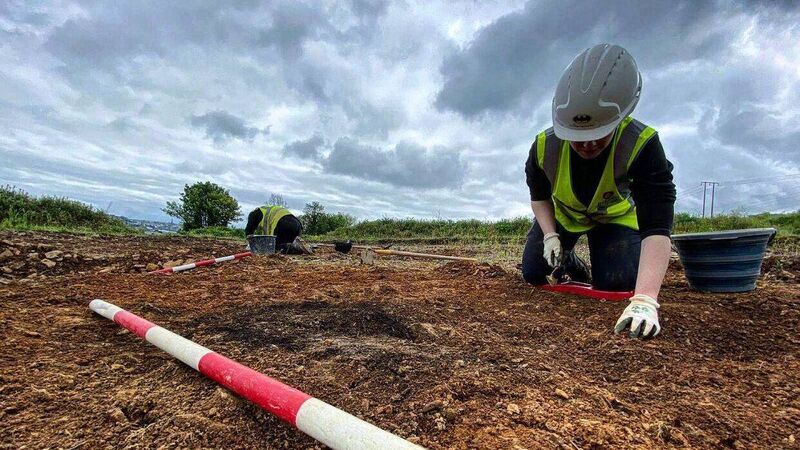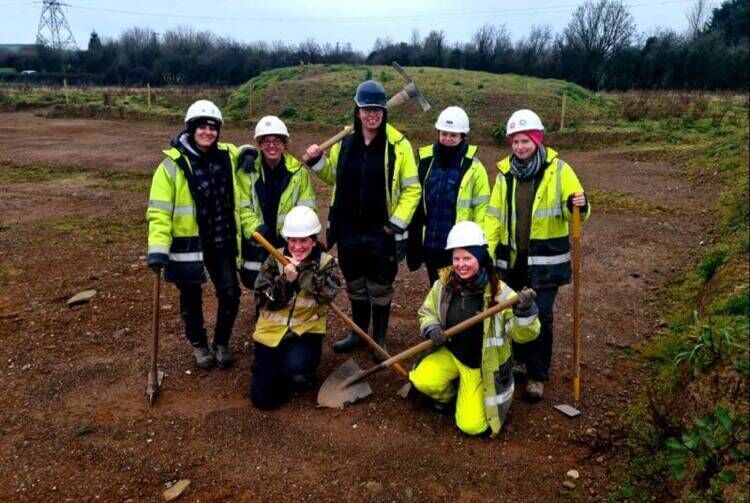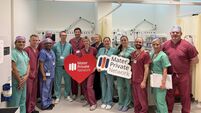My Career: A job full of surprises... never boring

Jennifer McCarthy, Field Archaeologist, Rubicon Heritage.
Name: Jennifer McCarthy.
Age: 29.
Lives: Cork city suburbs.
Job title: Field archaeologist, Rubicon Heritage
Salary bracket: €30,000–€50,000, depending on grade.
Education background: My educational journey has been a long ride. I stumbled into studying Art, Craft and Design straight after finishing secondary school, which was a short-lived endeavour. I then took a completely new route by studying Applied Psychology and Social Studies. I was pursuing this through studying Arts at University College Cork and needed an additional two subjects to take for first year before I could major in Psychology and minor in Sociology. I chose Archaeology and Philosophy out of necessity, not particularly out of interest (or so I thought!).
From the very first archaeology lecture, everything shifted and a whole new world I never knew existed opened up to me and, yet again, my career choices pivoted.
I ended up majoring in Archaeology and minoring in Philosophy achieving a Bachelor of Arts (BA Hons) degree. I continued in the university the following year and undertook a Master of Arts (MA) in Archaeological Excavation.
Hobbies: Horse-riding, gardening and, the odd time, doing something creative.
Describe your job in five words: Rewarding, fascinating, challenging, engaging and sometimes puzzling!
Describe yourself in five words: Creative, resourceful, adventurous, motivated and open-minded.
Personality needed for this kind of work? I think you need to be inquisitive and curious whilst at the same time being analytical and a critical thinker. Good communication and teamwork skills are also essential. You need to love being outdoors and be willing to work in all types of weather, and be OK with mud constantly following you around.

How long are you doing this job? Almost six years. I began working on various archaeological projects around the country for around four-and-a-half years. I took a short-term contract as a field archaeologist for a few weeks which turned into a few years. I joined Rubicon Heritage Services Ltd in February, 2022, as a supervising field archaeologist, working on Cork County Council’s M28 Cork to Ringaskiddy Project. This involved working alongside 40–50 archaeologists. This project was essentially on my doorstep, and I knew it would be a great opportunity. The project is still ongoing, and we have uncovered a large number and variety of previously unknown archaeological sites. Having gained experience at all stages on a project this large, varied and complex, it helped elevate me to the next stage in my career—becoming an archaeological excavation director. This was achieved through a successful competency-based interview by the National Monuments Service and the National Museum of Ireland.
Do you need particular qualifications or experience? Yes, generally a minimum of a BA degree.
Describe a day at work: A typical day on the M28 project starts with a daily briefing on the plan for the day, including on any relevant health and safety matters.
Once the team is briefed, archaeological excavation gets underway.
I generally supervise the excavation and I am on hand to answer any questions, give advice, or make suggestions to ensure best practice.
Checking that the paper archive is in order is a large part of my job. For every archaeological feature excavated, a paper record is created and must correlate to the overall site archive, or it will cause problems down the line when we are trying to piece together information gleaned from the site.
I also link-in regularly with the supervisors, directors, surveyors and the project manager, ensuring good communication and that everything is running smoothly.
How many hours do you work a week? 37.5 hours.
What do you wear to work? High-visibility vest/jacket, hard hat, gloves, steel-toe cap boots, work pants with lots of pockets, with rain gear never far out of reach.
Is your industry male or female dominated? It’s generally 50/50.
Does this affect you in any particular way? No.
Is your job stressful? How? Rate it on a scale of 1-10: It certainly can be depending on what the day brings. Archaeology, by its very nature, can churn up the unexpected and you have to roll with it. It can be especially stressful when we are nearing deadlines and are trying to wrap things up. I would say, on a general day, 6.
Do you work with others or on your own? Archaeology, and in particular archaeological excavation, is always a team effort — I’d like to see someone dig a wide and deep ditch on their own!
My favourite thing about working as part of a team is the vast range of ideas and perspectives - it reminds you to always keep an open mind and consider alternatives.
When do you plan to retire or give up working? When my back gives in (joking)! I think it’s a career choice born out of passion; with that, I don’t think it’ll ever leave me, even when I retire.
Best bits: Finding artefacts (obviously!) and being the first person to hold them for thousands of years, it truly never gets old. Having the craic on site and the comradery of it. Piecing together the fragments of past lives, forming narratives and contributing to the story of our rich cultural heritage.
Worst bits: When you’re digging in the rain and your pit fills up with water and you have to bail it out, only for it to fill up again and again! Sometimes it’s ten steps backwards to go one step forward!
Advice to those who want your job? Go for it! It’s a very rewarding and enriching career path.
It’s most certainly never boring and is full of surprises .
It generally does involve travelling the length and breadth of the country particularly in the early stages of your career, so you do need to be flexible.
Driving and having your own car will make a huge difference and can often be the difference in getting jobs.
It can be difficult starting off so resilience is required, and you will spend a lot of time trying to find another way to make things work but with persistence, you will get there.
Any other comments? Always make sure to empty your pockets before putting your work gear in the washing machine, you’d be amazed what ends up in your pockets (nails are the enemy!)







 App?
App?




